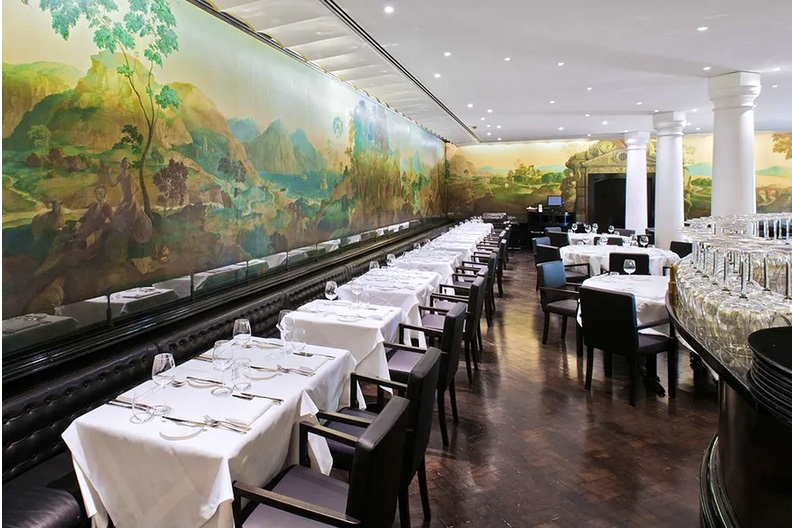Nearly two years on from the public backlash against its Rex Whistler mural, Tate looks to commission artwork in response

London’s Tate has revealed plans to address the controversial Rex Whistler mural The Expedition in Pursuit of Rare Meats (1927) in Tate Britain’s restaurant. Following an independent report by an ethics committee that was published in 2020, in which the authors were ‘unequivocal in their view that the imagery of the work is offensive’, and that ‘the offence is compounded by the use of the room as a restaurant’, the galleries received backlash for the work that depicts scenes of enslaved black children being led on a leash and caricatures of Chinese subjects. Despite calls for its removal, the galleries maintained that the mural is part of Tate Britain’s Grade I-listed interior, and sought instead to ‘reframe’ the work with an updated text, and took the decision to close the room as a restaurant.
In its latest announcement, Tate has said it will invite a contemporary artist to create a site-specific installation that will be presented ‘in dialogue’ with the mural. Alongside the commissioned artwork, a display of ‘interpretive material’ will ‘critically engage with the mural’s history and content, including its racist imagery’. This proposal was developed from ‘a series of discussions held in 2021 which invited voices from outside Tate to explore possible options, including artists, art historians, cultural advisors, civic representatives and young creative practitioners’.
In statements to the press, Rachel Noel, Convenor of Young People’s Programmes at Tate, and a co-chair of Rex Whistler mural discussions said: ‘Young people want to see museums take ownership of their difficult histories and explore how the past relates to our future. They want to be a part of a new way of presenting art which is porous, conversational, transparent and unfinished, which brings together different voices and presents opportunities for learning through critical and artistic exchange.’
While another co-chair, Amia Srinivasan, Chichele Professor of Social and Political Theory at All Souls College, University of Oxford responded: ‘Conversations about the mural were open, rigorous, and filled with good-natured but deep disagreement: Would keeping the mural open to the public accentuate its power? Would shutting it off risk doing the same? Could the space be used by artists of colour as a creative site of reappropriation? Or would this unfairly burden them with a problem produced by a historically white institution? One of the few points of consensus was that Tate had to take ownership of its history, and that whatever decision was made had to be an invitation to a broader conversation, not the end of one.’